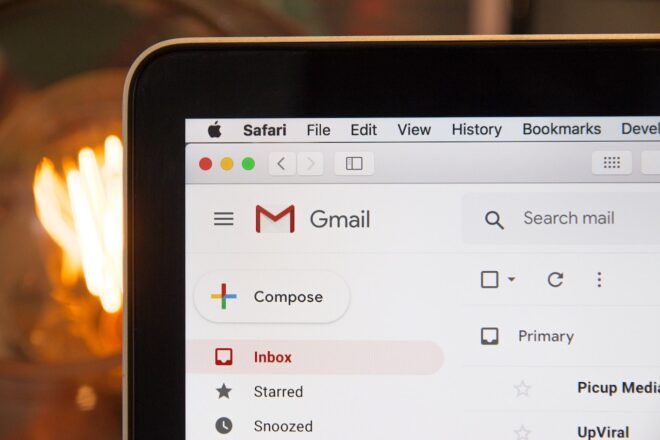How inflation impacts businesses and ways to overcome it
Editorial Team
5 min read
You don’t need an MBA to know that inflation can have a negative impact on the economy. As prices continue to rise across the nation, Americans are finding it increasingly difficult to buy the goods and services they need.
This is certainly true for the average consumer; however, for small business owners trying to stay afloat after surpassing the challenges of the pandemic, rising inflation threatens their very existence.
This article explains what inflation is, how it impacts small businesses, and what steps you can take to protect yourself from rising prices.
What is inflation?
Most people think of inflation as an increase in pricing; however, it’s really a measure of each dollar’s dwindling purchasing power – tracked using the Consumer Price Index (CPI) administered by the U.S. Bureau of Labor Statistics. As more money circulates in the national and global economy, each dollar bill becomes slightly less valuable. As a result, you need more money today to buy the same goods as yesterday.
Some inflation is normal with population growth, as more consumers, businesses, and even lenders enter the economy. Under ideal circumstances, the impact of inflation on business owners and consumers can be managed, with the U.S. Federal Reserve often using 2% annual inflation growth as an indication of a strong economy.
In layman’s terms, the effects of inflation at 2% means a can of soda that cost $1 last year would now cost $1.02 today.
In March 2022, however, U.S. inflation hit 8.54% – the highest it’s been in roughly four decades. Although there are several potential causes behind this spike, some of the biggest contributing factors include:
- The pandemic, which disrupted supply chains worldwide – making it harder to manufacture and deliver goods.
- COVID-related lockdowns and layoffs, requiring injections of stimulus funding just to keep the economy afloat.
- More people spending money in what was once a very sluggish economy; this is objectively a good thing, but it also means there are more buyers competing for the same goods and services all at once, which naturally drives up prices as a result.
How does inflation affect businesses?
As a consumer, you likely already understand the negative impact of inflation when managing your home expenses. The same general phenomenon is at play when managing a business, too. Things are more expensive across the board.
In strictly economic terms, the effects of inflation on small business owners include:
- Operating expenses are now higher than before
- Paying and maintaining employees is more expensive
- Supply chains are less reliable, but have more competition
- Shipping costs also increase for you and your customers
Covering these expenses often requires raising your prices, which could reduce overall demand for your goods and services. However, it’s worth noting that the impacts of inflation aren’t always negative. Servicing debt, for example, can become easier. This is because you’re now paying back lenders with cash that is more plentiful but less valuable than when you first borrowed the money.
How to overcome inflation
The U.S. Federal Reserve is tasked with managing inflation by using methods to decrease the supply of money or by increasing interest rates.
While you can’t do anything personally to stop inflation, there are steps you can take to mitigate the negative impacts of inflation on your business. Some of the more common strategies include:
- Conducting a thorough audit of expenses to identify costs you can cut. This analysis should also include diversifying your supply chains so that you’re not as dependent on any single source.
- Using innovative marketing to stand out in an increasingly saturated crowd. For example, you can successfully increase your prices to entice more sales or larger orders. You can also use discounts, promotions, and loyalty programs to turn first-timers into repeat customers.
- Improving employee retention. It costs money to recruit, hire, and train new workers as old ones leave. If you can’t afford to raise salaries, consider offering other types of perks such as flextime, telecommuting, or employee bonuses.
- Saving a nest egg, if possible. Having a little extra on the side can help you weather rough times later. Alternatively, you can apply for loans or cash advances to cover immediate expenses – or help expand your business
- Leveraging automation to eliminate costs and save time. For example, having the software you use to run your business integrated with your point of sale system can help remove the need for manual data entry, allowing you to manage your books, employees, inventory, and time more efficiently.
Small business solutions to help soften the impact of inflation
In these uncertain times, prices could continue to rise – especially with war, supply chain issues, and a growing global population.
Our POS solutions, including inventory management, detailed reporting, and customer engagement, can help ease some of the effects of inflation on your small business.
To learn how our POS systems can help, schedule a free consultation with a Clover Business Consultant today.
CONTACT SALESThis information is provided for informational purposes only and should not be construed as legal, financial, or tax advice. Readers should contact their attorneys, financial advisors, or tax professionals to obtain advice with respect to any particular matter.
Related Posts
How to find and utilize social media influencers for your business
Why are customers unsubscribing/unfollowing us?
Popular Topics
Stay in touch
Sign up and learn more about Clover.
Thank you for your subscription!
More posts about starting a small business
eBook





